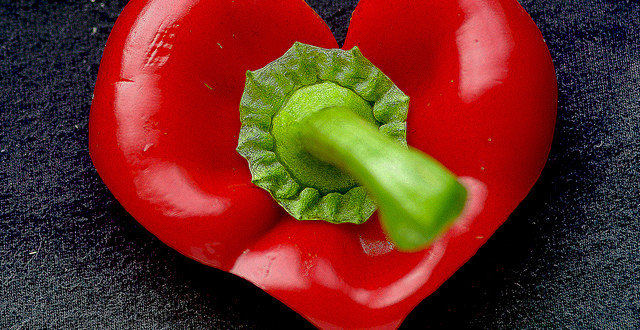by Michelle Sutton-Kerchner
February is American Heart Month. Make your heart happier …
A Starting Place
Whether you work out daily or are more of a couch person these days, here are simple ways to improve your heart health. Consider them sparks to fuel a stronger heart.
Move More

Increase your fitness routine by 10 minutes daily. Don’t have a routine? Start one now, even if for only 10 minutes a day. Beginners can reduce their risk of heart disease by up to half with only 60 to 90 minutes of weekly physical activity. Progress to more intense exercise, at longer intervals, to further benefit your heart and overall health. Work to exceed the government recommendation of 30 minutes or more daily exercise.
Living an active lifestyle, with a commitment to fitness, indirectly boosts heart health as well. Active living helps prevent metabolic syndrome, a group of risk factors known in combination to be especially dangerous. This group includes high blood pressure, high blood sugar, poor cholesterol levels, and abdominal fat.
Metabolic syndrome, known by the American Heart Association to affect 47 million Americans, greatly increases vulnerability to heart attack and stroke events. It also increases diabetes risk by five times, which puts its own strain on the cardiovascular system.
That is plenty of motivation to get moving on this sluggish February day!
Fruits, Veggies, and the Heart: A Love Affair

The heart loves fruits and vegetables, and for good reason. These foods deliver powerful nutrients. They help protect the heart against illness and maintain superior functioning.
Potassium helps maintain healthy blood pressure. Some sources include bananas, avocados, kiwi, sweet and white potatoes, tomatoes, and spinach.
Dietary fiber from produce helps improve cholesterol levels. High-fiber fruits and vegetables also satisfy your appetite, which prevents you from using less-healthy hunger busters that may introduce heart risk factors. Broccoli, cauliflower, red raspberries, blackberries, and spinach are great choices for fiber.
Snack on foods to promote heart health rather than risk it. Crunch away on these raw, easily portable snacks and meal sides. They are fast and simple. Start small. Exchange your morning bun for apple slices. Power up your day as well as your heart!
Sleep Enough and Not More

Most don’t associate sleep with heart health. However, a 2011 review published in the European Heart Journal awakened us to the protective powers sleep has on cardio health. Short sleepers (less than six hours per night) increased their risk of developing or dying from coronary heart disease (CHD) by 48 percent during the 7 to 25-year follow-up periods. Those involved in these extensive studies also had a 15 percent greater risk of stroke during follow-up.
Although the heart never sleeps (thankfully), a quality night’s rest decreases its work. Blood pressure and heart rate drop. Sleep deprivation often leads to chronic elevation of the heart rate, to which the body reacts as a heightened state of stress. Appetite regulation is affected, which may cause overeating. That consumed food may be met with insulin resistance, commonly associated with lack of sleep. These factors indicate a strong relationship between good sleep and heart health.
All things, even good, in moderation. Study participants who averaged nine or more hours of sleep per night had their own increase in CHD (38 percent) and stroke risk (65 percent). Perhaps the trigger is not the extra sleep, but the absence of activity you could be doing during that time.
Those who don’t get enough sleep have more waking time to satisfy unhealthy cravings, and a predisposition to crave them. Those who get too much may short themselves time for physical activity. Those who get just enough have the energy for more activity, without the other risk factors.
Physical activity, healthy snacks, and quality sleep are not the only requirements for a healthy heart. They are a start. Focus on improvements in these areas. Add 10 minutes to your workout. Take a bag of carrot sticks to work. Sleep a little longer (or less). Do this for a few weeks. You’ll feel good and be motivated to do more.
Sources
Choosemyplate.gov
“How Sleep Affects Your Heart,” by Christina Boufis at webmd.com.
“What Is Metabolic Syndrome?” at webmd.com.
Images
Red pepper heart (introductory photo): flickr.com/photos/27384147@N02/5523914450/
Sneaker lace-up: flickr.com/photos/guzzphoto/8424357797/
Fresh veggies: flickr.com/photos/suckamc/2488644619/
 Fitness & Wellness News Your Source for Fitness News, Wellness News, Health News, and Nutrition News!
Fitness & Wellness News Your Source for Fitness News, Wellness News, Health News, and Nutrition News!




